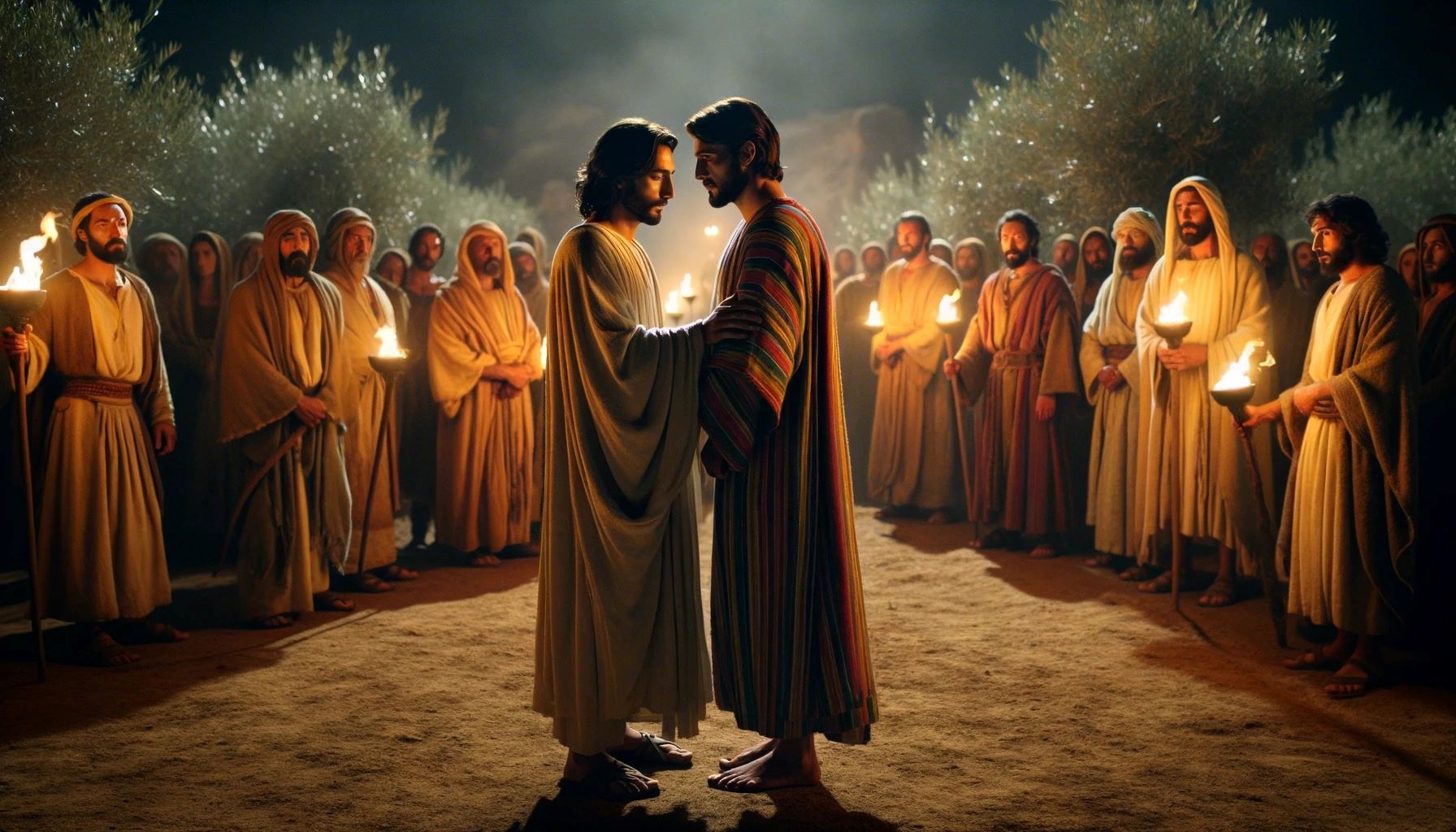Home>Christian Videos>Bible Stories>What Is The Fate Of Those Who Have Never Heard The Good News Of Jesus Christ?


Bible Stories
What Is The Fate Of Those Who Have Never Heard The Good News Of Jesus Christ?
Published: March 1, 2024
Ericka Andersen, an editor at Christian.net, expertly merges digital strategy with content creation, focusing on faith and societal issues. Her communication skills enhance the platform's engaging narratives, fostering meaningful dialogue on belief's impact on society.
Discover the fate of those who have never heard the Good News of Jesus Christ through insightful Bible stories. Explore the impact of this crucial question.
(Many of the links in this article redirect to a specific reviewed product. Your purchase of these products through affiliate links helps to generate commission for Christian.net, at no extra cost. Learn more)
Table of Contents
The Dilemma of Unreached People
The dilemma of unreached people poses a significant theological and ethical challenge for many Christians. It raises the question of the fate of those who have never had the opportunity to hear the Good News of Jesus Christ. This dilemma is particularly poignant in light of the traditional Christian belief that salvation is found exclusively through faith in Jesus. The issue becomes even more complex when considering the vast number of people throughout history and in the present day who have lived and died without ever encountering the message of Christianity.
-
Unaware of the Gospel: Many individuals in remote areas or within closed societies have never been exposed to the teachings of Christianity. This lack of exposure raises concerns about their spiritual destiny and whether they will be held accountable for not believing in something they have never had the chance to hear.
-
Theological Implications: The dilemma of unreached people also raises theological questions about the nature of God's justice and mercy. If salvation is only attainable through knowledge of and belief in Jesus Christ, what does that mean for those who have never had the opportunity to receive this knowledge?
-
Ethical Considerations: For Christians, the ethical implications of this dilemma are profound. It prompts believers to consider their responsibility in sharing the Gospel with those who have not yet heard it. It also challenges the traditional understanding of evangelism and the urgency of spreading the message of Christ to all corners of the world.
The dilemma of unreached people is a thought-provoking and deeply challenging issue within Christian theology. It compels believers to grapple with the complexities of God's justice and mercy, the ethical imperative of sharing the Good News, and the hope that can be found in the sovereignty of God.
The Justice and Mercy of God
The justice and mercy of God are central themes in the Christian faith, and they play a crucial role in addressing the dilemma of unreached people. Christians believe in a God who is both perfectly just and infinitely merciful, and reconciling these attributes in the context of unreached individuals is a profound theological challenge.
-
Divine Justice: The concept of divine justice underscores the idea that God is fair and righteous in His dealings with humanity. It raises the question of how God could hold individuals accountable for their response to the Gospel when they have never had the opportunity to hear it. This aspect of God's character prompts believers to consider the implications of His justice for those who have not been exposed to the message of Christ.
-
Unfathomable Mercy: At the same time, the mercy of God is a source of hope and comfort for Christians grappling with the fate of the unreached. The belief in God's boundless mercy leads to the recognition that His grace is not limited by human understanding or geographical boundaries. This aspect of God's character offers reassurance that His redemptive plan extends beyond human limitations.
-
The Mystery of God's Ways: Ultimately, the justice and mercy of God are part of the divine mystery that transcends human comprehension. Christians are called to trust in the wisdom and goodness of God, even when faced with the enigma of unreached people. This trust is grounded in the belief that God's justice and mercy are perfectly harmonized in His divine nature, and that His ways are beyond human understanding.
The justice and mercy of God provide a framework for contemplating the fate of those who have never heard the Good News of Jesus Christ. While the tension between these attributes may remain unresolved in human understanding, Christians find solace in the belief that God's justice and mercy are perfectly balanced in His sovereign plan for all of humanity.
The Role of Christians in Spreading the Good News
-
Great Commission: Christians are called to fulfill the Great Commission, which is the mandate given by Jesus to His disciples to go and make disciples of all nations. This commission underscores the central role of believers in sharing the Gospel with people from every corner of the world. It emphasizes the responsibility of Christians to actively engage in evangelism and to bring the message of salvation to those who have not yet heard it.
-
Global Missions: The role of Christians in spreading the Good News extends to global missions and outreach efforts. Many Christian organizations and missionaries are dedicated to reaching unreached people groups and sharing the message of Christ in regions where Christianity is not widely known. This involves a commitment to cross-cultural communication, language learning, and contextualizing the Gospel in ways that resonate with diverse cultural contexts.
-
Prayer and Support: Christians play a vital role in spreading the Good News through prayer and support for mission work. Interceding for unreached people groups, missionaries, and the advancement of the Gospel is a crucial aspect of fulfilling the mandate to spread the message of Christ. Additionally, providing financial and logistical support for mission initiatives enables believers to contribute to the global effort of reaching those who have never heard the Good News.
-
Lifestyle Witness: The role of Christians in spreading the Good News also encompasses living as faithful witnesses to the transformative power of the Gospel. This involves embodying the values of the Kingdom of God in everyday life, demonstrating love, compassion, and integrity, and reflecting the character of Christ in all interactions. Through their actions and attitudes, believers can effectively communicate the message of the Gospel to those around them, serving as living testimonies to the truth of the Good News.
-
Empowerment and Equipping: Equipping and empowering believers for evangelism and mission work is an essential aspect of the Christian's role in spreading the Good News. Providing training, resources, and mentorship for individuals who are passionate about sharing the Gospel enables a broader network of Christians to actively participate in the mission of reaching the unreached. This involves nurturing a culture of missional engagement within the Christian community and fostering a sense of collective responsibility for global evangelization.
The role of Christians in spreading the Good News is multifaceted and encompasses a range of activities, attitudes, and commitments aimed at fulfilling the mandate to make disciples of all nations. Through intentional engagement in evangelism, global missions, prayer, lifestyle witness, and equipping others for mission work, believers actively contribute to the ongoing effort to reach those who have never heard the message of Jesus Christ.
Hope for the Unreached Through God's Sovereignty
The hope for the unreached through God's sovereignty is a foundational belief that sustains many Christians in the face of the dilemma of unreached people. It centers on the conviction that God's sovereignty transcends human limitations and encompasses His redemptive plan for all of humanity, including those who have never heard the Good News of Jesus Christ.
-
Divine Providence: The hope for the unreached is rooted in the understanding of God's providential care and oversight. Christians believe that God is actively at work in the world, orchestrating events and circumstances to fulfill His purposes. This includes His sovereign oversight of the lives of unreached individuals, guiding them towards encounters with the Gospel and opportunities for salvation, even in ways that may be beyond human comprehension.
-
Redemptive Inclusivity: The hope for the unreached through God's sovereignty is grounded in the belief in the redemptive inclusivity of God's plan. Christians affirm that God's desire for the salvation of all people extends to those who have never had the chance to hear the Gospel. This inclusivity reflects the expansive reach of God's grace and the assurance that His redemptive work is not confined by geographical, cultural, or historical boundaries.
-
Unfolding Revelation: The hope for the unreached is also tied to the recognition of God's ongoing revelation. Christians trust in the belief that God continues to reveal Himself to individuals in ways that transcend human evangelistic efforts. This unfolding revelation offers hope that unreached people may have opportunities to encounter the truth of the Gospel through divine interventions, dreams, visions, or other extraordinary means, demonstrating God's sovereignty in reaching those who have not been reached through conventional missionary endeavors.
-
Eternal Justice: The hope for the unreached through God's sovereignty is underpinned by the assurance of God's eternal justice. Christians find comfort in the conviction that God, as the ultimate arbiter of justice, will judge all individuals with perfect fairness and righteousness. This includes His just treatment of those who have not had the opportunity to hear the Good News, as His sovereignty ensures that no one will be overlooked or unfairly judged based on circumstances beyond their control.
-
Prayer and Intercession: The hope for the unreached through God's sovereignty is sustained through fervent prayer and intercession. Christians actively lift up unreached people groups to God, trusting in His sovereignty to work in their lives and bring about opportunities for them to encounter the Gospel. This prayerful engagement reflects a reliance on God's sovereign agency in reaching the unreached and demonstrates the hope that believers place in His redemptive plan.
The hope for the unreached through God's sovereignty provides a profound source of encouragement and assurance for Christians as they grapple with the fate of those who have never heard the Good News of Jesus Christ. It reflects a deep trust in the sovereignty of God and His redemptive purposes, offering a perspective that transcends human limitations and underscores the belief in the inclusive and unfathomable reach of God's grace.















